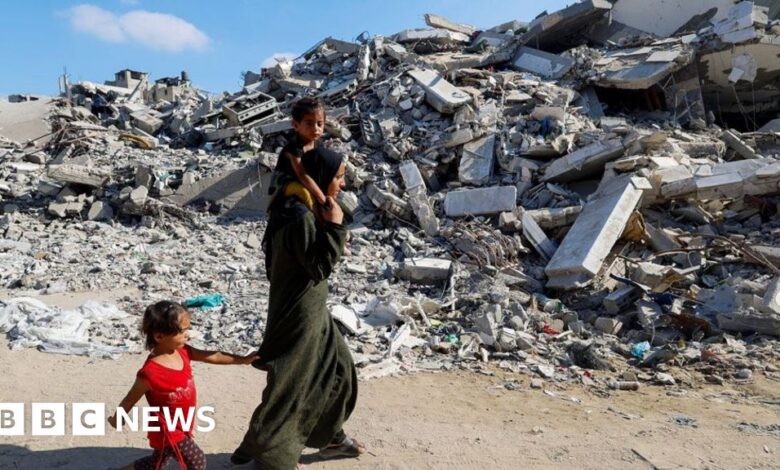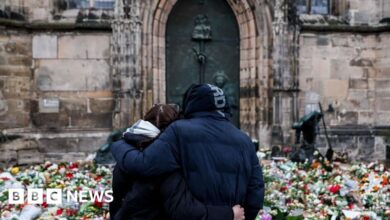What does this mean for the Gaza ceasefire?

We are beginning to get some idea of how Ismail Haniyeh was killed. Early indications are that he and his bodyguards died when a missile hit the house where he was staying in Tehran.
All eyes will inevitably be on Israel, which has vowed to hunt down and punish all Hamas leaders following the brutal October 7 attacks in which some 1,200 Israelis and foreigners were killed.
Israel does not typically comment on its operations abroad, but this attack may follow the same pattern as an Israeli operation targeting Iranian air defenses around the Natanz nuclear facility on April 19.
Israeli jets are believed to have fired missiles from outside Iranian airspace.
But as details of the attack slowly emerge, its political consequences are also coming into focus.
Most obvious is the potential damage to fragile ceasefire negotiations in Gaza.
Ismail Haniyeh may not be responsible for managing day-to-day events on the ground in Gaza – that is the purview of military commander Yahya Sinwar – but as the exiled Hamas leader, he is a key interlocutor in talks brokered by Qatar, the United States and Egypt.
US officials have recently suggested that ceasefire talks could soon be successful, although a meeting in Rome last weekend failed to produce a breakthrough.
But it is difficult to see any progress being made immediately after the assassination of Ismail Haniyeh.
All of this begs the question: If this was an Israeli operation as everyone thinks, why was it carried out?
Beyond wanting revenge on anyone associated with Hamas, what else does Israel hope to achieve?
The Turkish Foreign Ministry has outlined the possible reactions of many countries in the region.
“Once again, the government of [Israeli Prime Minister Benjamin] Netanyahu has no intention of achieving peace,” the statement said.
In Ramallah, the headquarters of the Palestinian Authority, news of Haniyeh’s death caused shock.
“It is opening the gates of hell,” Sabri Saidam, deputy secretary-general of the ruling Fatah party’s Central Committee, told the BBC.
Mr Saidam said he felt both shocked and angry.
“I feel that Israel is not only targeting the life of Ismail Haniyeh,” he said, “but also targeting the lives of any settlements in the area. Israel has killed any hope and aspiration for an end to hostilities.”
Fatah and Hamas have long been rivals, sometimes bloody rivals. But Mr Saidam strongly rejected the idea that Fatah could benefit from the Hamas leader’s death.
“There has never been a sense in Palestinian politics that leadership by elimination is the way forward,” he said.
“If anything, it will create more resentment and discord.”
A strike has been called in Ramallah and across the West Bank.
Shops are closed and a protest march is underway, in what could be an awkward moment for the Palestinian Authority in Ramallah.
The latest opinion polls show Ismael Haniyeh is much more popular than the elderly Palestinian President Mahmud Abbas.
The timing of Haniyeh’s killing suggests it was part of a larger Israeli retaliation for a Hezbollah rocket attack that killed 12 Druze children and teenagers in the Israeli-occupied Golan Heights on Saturday — a retaliation that included the killing of a senior Hezbollah commander in Beirut on Tuesday.
Israel has warned that its response will be tough.
Israeli officials frequently point to Iran as the center of a so-called “arc of resistance” in the Middle East, which includes Hezbollah in Lebanon, Hamas in Gaza and the West Bank, and the Houthis in Yemen.
After dealing a blow to Hezbollah in Beirut (and more recently the Houthis in Hodeidah), the killing of the Hamas leader in Iran sends a powerful and chilling message to militant groups and their Iranian backers: Israel can and will come after you, wherever you are.




